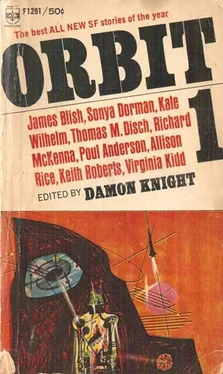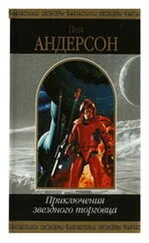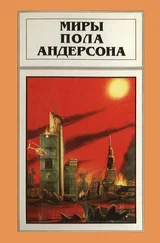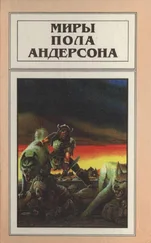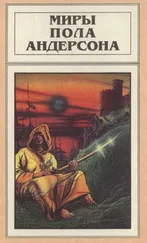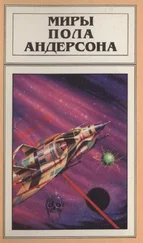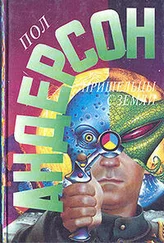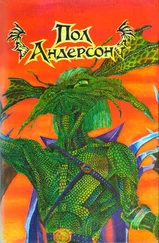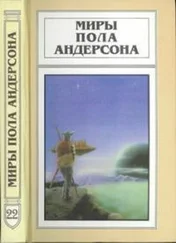Пол Андерсон - Orbit 1
Здесь есть возможность читать онлайн «Пол Андерсон - Orbit 1» весь текст электронной книги совершенно бесплатно (целиком полную версию без сокращений). В некоторых случаях можно слушать аудио, скачать через торрент в формате fb2 и присутствует краткое содержание. Год выпуска: 1966, Жанр: Фантастика и фэнтези, на английском языке. Описание произведения, (предисловие) а так же отзывы посетителей доступны на портале библиотеки ЛибКат.
- Название:Orbit 1
- Автор:
- Жанр:
- Год:1966
- ISBN:нет данных
- Рейтинг книги:4 / 5. Голосов: 1
-
Избранное:Добавить в избранное
- Отзывы:
-
Ваша оценка:
- 80
- 1
- 2
- 3
- 4
- 5
Orbit 1: краткое содержание, описание и аннотация
Предлагаем к чтению аннотацию, описание, краткое содержание или предисловие (зависит от того, что написал сам автор книги «Orbit 1»). Если вы не нашли необходимую информацию о книге — напишите в комментариях, мы постараемся отыскать её.
Orbit 1 — читать онлайн бесплатно полную книгу (весь текст) целиком
Ниже представлен текст книги, разбитый по страницам. Система сохранения места последней прочитанной страницы, позволяет с удобством читать онлайн бесплатно книгу «Orbit 1», без необходимости каждый раз заново искать на чём Вы остановились. Поставьте закладку, и сможете в любой момент перейти на страницу, на которой закончили чтение.
Интервал:
Закладка:
Orbit 1
By Damon Knight
Scanned & Proofed By MadMaxAU
Introduction
Here are the nine best new science fiction stories I could find in eight months of reading manuscripts. I did not know when I started what kind of stories I was looking for: all I had in mind was to try to put together a collection of unpublished stories good enough to stand beside an anthology of classic science fiction.
As this collection grew, I discovered what I was looking for by finding it. These are stories by master craftsmen. They are about something; they are not the sort of stories you forget as soon as you have read them. They are as entertaining as any story written “purely to entertain”—but they do more than that. Every one is a voyage of discovery into strange places of the universe and of the human psyche. Every one has that quality of unexpected tightness that marks a really good story. By my count, there are three brand-new ideas in this collection, and six brilliant variations on old themes, from the Earth colony on another planet (“The Disinherited”) to the arrival of aliens on Earth (“Kangaroo Court”).
In the normal course of things, if there had never been an Orbit 1, I believe you would have seen these stories in anthologies anyhow — after magazine publication, in three or four years. But why should you have to wait? Here they all are, now, fresh and new, in one book.
DAMON KNIGHT
KATE WILHELM’S first science fiction story, “The Mile-Long Spaceship,” has been reprinted three times in the nine years since it was written. Here is one which I think will prove equally durable. It’s a very human story, even though its hero is tentacled and shaped like a tulip.
STARAS FLONDERANS
By Kate Wilhelm
The great ship had picked up an uneven coating of space debris. Her once silver sides were scabrous with the detritus of ancient collisions and explosions: planetary, stellar, galactic rubble that had been hurled out from high-velocity impacts, or from the even more furious paroxysms of novas and supernovas to hurtle through space until the minute gravitational field of the ship netted speeding dust motes and drew them to her sides. A gaping rent on one side of her, and many dents and scars, told of blind passage through the littered reaches. The ship was spinning erratically, not on her own axis to give interior gravity, but with a lopsided, over-her-left-shoulder tumble. There was still enough silver left for her to reflect some of the starlight when the patrol boat first sighted her visually.
She had been a blip on the scanner a long time before she was close enough to view on the screen. The three men watching her were silent while she tumbled twice; they were satisfied that she was the dead ship they were after. A luxury liner had first spotted her. The captain had made no attempt to board, but had plotted her course and filed a report.
“She’s right on schedule,” Conly said. His voice was harsh and abrupt. He was big, more than six feet tall, two hundred pounds or more, with bold features — a too-large nose, square thrusting chin, ears that stood away from his shaved head, a high heavy forehead, and wide gray eyes that gave him a false look of feline cruelty. He was in command of the Fleet scout craft.
As Conly turned from the screen, Malko, the second man watching, whistled softly between his teeth. Shorter than Conly, he was more massive, with a great heavily muscled chest, bulging biceps and leg muscles, spatulate fingers. His legs, arms and chest were covered with black curly hair. He had a curling beard and heavy, black eyebrows. His eyes were dark blue; there were many crinkle lines of laughter on his face, about his eyes.
The third man was not a human. He was Staeen, the Chlaesan observer. He, also, turned from the screen and watched Conly take his place before the controls. Staeen was much shorter than either of his companions, although, if he chose to, he could elongate himself to their height. Staeen drew his mantle closer about his body and flowed toward his own couch. He was shaped like an inverted tulip when he gathered his mantle about him. The mantle looked like dark gray leather. Under it his body parts were soft and pink; his brain was encased in more leathery covering, as were his tentacles. His eyes were close to his body now, but they could extend; the eyeballs had transparent protectors over them. His upper half served as a sense organ, like an ear, with the inner parts complex mazes of tubes, membranes, chambers. The organ allowed him to feel vibrations well above and below the human range of hearing. Staeen knew that his human companions were considered handsome among their own kind; he was beautiful in the eyes of his people. When he got to his couch he flowed up onto it, then let himself settle down to a slightly raised mound of leather. He sealed the mantle.
“Ready?” Conly asked. They would accelerate to approach the derelict, lock onto her and investigate from her stem to her stern.
Malko grunted, and Staeen said, “Let’s go.” Under his mantle there was a small two-way radio that had been modified so that it amplified his chest vibrations and translated them into sounds that were intelligible to the humans.
Conly brought the small scout closer to the great ship, matching her speed until they were side by side. The slow tumble of the crippled ship caused her to wobble as she turned over. She had passed through a region of heavy dust and rocks; the damage done to her was extensive, with several holes in the forward section where the engine room and controls were located. Conly cursed harshly. Malko grunted, glanced at Staeen and said, “Lifeboat pods are empty. She’s abandoned, all right.”
“They left her on manual,” Conly said. “If she’d been on automatic, the computer would have dodged all that junk. She must be hotter than hell.”
He began the approach maneuver, guiding the scout toward the rear of the big ship, away from the engine section and the radioactivity. Malko and Conly made a good team. Staeen felt wave after wave of worry come from Malko, while Conly sent nothing during the difficult approach. It took skillful handling to bring the small boat to the right place, but he edged in, first a foot at a time, then inch by inch until it seemed they could reach out and touch the other ship. Staeen watched with admiration as the ship started to come nearer them, her tumbling motion completing the maneuver. Conly adjusted the controls, lifting the scout slightly, and when the two met, the jar was so slight that it might have been imagined rather than felt.
“That’s that,” Conly said, locking the scout in place magnetically. “Let’s eat first, then board her and see what’s what.”
While the two humans prepared and ate their rations, Staeen turned from them to gaze out the port. Unlike species most often preferred not to watch one another partake of food, or perform other bodily functions. He knew his mouth parts were disgusting to the humans. Under his mantle his tentacles fed capsules into the pink mouth parts that moved rhythmically, and he stared with delight at the unwinding scene passing before his eyes. The tumble of the ship that they now shared seemed gone; all motion had been imparted to the stars about them, but it was a curious motion. It was as if a black velvet cloth were being carried past him, making a slow twist, then settling very slowly downward. It was all very unhurried and leisurely. It was a new way of looking at space.
His people had known space for thousands of years, so long that they no longer regarded it as a thing to be conquered. They were almost as much at home in space as they were on the surface of their worlds, or in the depths of their oceans. Evolution, in fashioning their mantles, had adapted them to any environment, even, for short lengths of time, to a vacuum. Because they always adapted themselves rather than their surroundings, and because of their generosity and open good will, they were much loved by the various races of the galaxy.
Читать дальшеИнтервал:
Закладка:
Похожие книги на «Orbit 1»
Представляем Вашему вниманию похожие книги на «Orbit 1» списком для выбора. Мы отобрали схожую по названию и смыслу литературу в надежде предоставить читателям больше вариантов отыскать новые, интересные, ещё непрочитанные произведения.
Обсуждение, отзывы о книге «Orbit 1» и просто собственные мнения читателей. Оставьте ваши комментарии, напишите, что Вы думаете о произведении, его смысле или главных героях. Укажите что конкретно понравилось, а что нет, и почему Вы так считаете.
